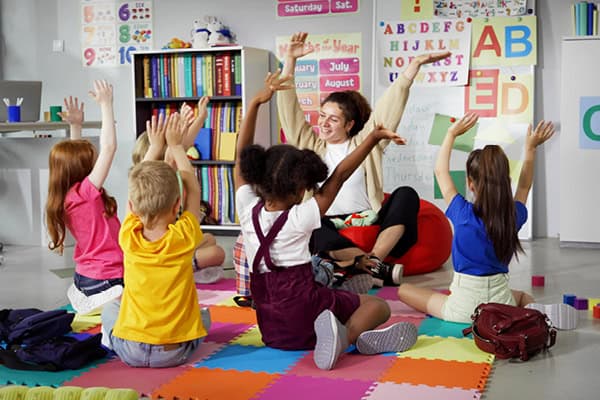For educators, specific feedback is more valuable than general compliments. Public shoutouts of good work can be polarizing. And free food ranks low on the list of meaningful acknowledgments, according to Education Week.
A nationally representative survey from the EdWeek Research Center of 239 district leaders, 161 school leaders, and 553 teachers asked educators to select the kind of praise or acknowledgment from their supervisor that would be very meaningful to them.
Results provide some context as administrators try to boost low teacher morale and keep their staff from leaving. A past EdWeek Research Center survey found that 54 percent of teachers said more acknowledgment of their good and hard work would go a long way toward supporting their mental well-being.
Verbal feedback that was specific in nature was the highest-ranked type of praise, with 58 percent of all educators (teachers and administrators) saying it was very meaningful. Specific written feedback was a close second.
Forty-eight percent of educators said verbal praise with a general compliment on their work was very meaningful, with general written feedback following closely behind.
Compared to verbal or written feedback, tangible and intangible rewards—ranging from gift cards to free food to a jeans day—were much less frequently chosen by educators as being very meaningful.
Teachers were more likely than administrators to say they would find a tangible reward, like a gift card, to be very meaningful—39 percent of teachers said so, compared with about a quarter of school or district leaders, who are paid more than teachers on average.
In open-ended responses to the EdWeek Research Center survey, several educators said the most meaningful acknowledgment of their work would be a pay raise.
Others said public support and recognition would be meaningful. A prior survey shows that about three-fourths of teachers feel respected and are seen as being a professional by their students’ parents, and just about half feel respected by the general public.
Genuine acknowledgment from administrators might come in the form of “having my back when it comes to parents’ attacks,” an elementary teacher wrote. Another elementary teacher suggested “newsletters to the community praising our accomplishments.”
An elementary school principal wrote that praise should be specific and based on a variety of factors, including student growth, teacher collaboration, school climate, and data-based successes.
“It is important to recognize the hard work we all put in,” that principal wrote. “I like when a supervisor takes a ‘we are all in this together’ approach.”
Education Week






